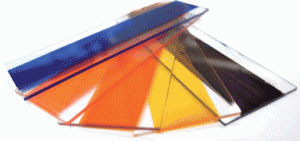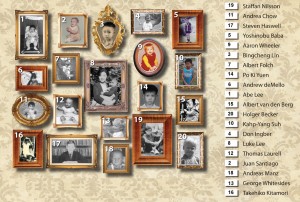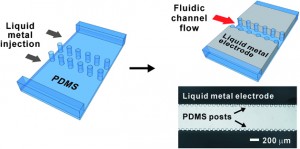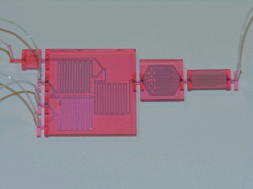As more and more kinds of microfluidic devices are developed there is a growing need for sensors which can non-intrusively measure the heat and temperature effects taking place within them. To address this Hassan Peerhossaini and colleagues at the University of Nantes in France have developed a new kind of heat-flux temperature sensor based on thin-film thermoresistance technology.
The sensor consists of 40 gold thin-film thermoresistances (85 nm thick) on a borosilicate substrate (20 per side) which provide the temperature sensing points.
This paper reports the fabrication and characteristics of the sensor and describes its use to measure the heat transfer properties of straight microchannels 12.5 to 52.2 um high and 4 mm wide.
Want to find out more? Read the paper here.
A novel thin-film temperature and heat-flux microsensor for heat transfer measurements in microchannels
David Hamadi, Bertrand Garnier, Herve Willaime, Fabrice Monti and Hassan Peerhossaini
Lab Chip, 2012, Advance Article
DOI: 10.1039/C2LC20919E, Paper


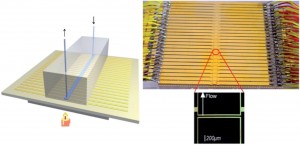









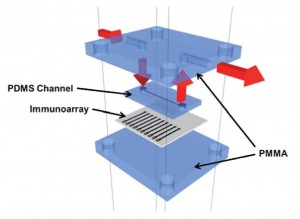
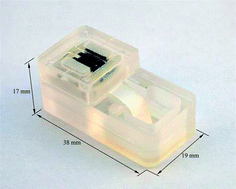
![microtas2011_logo[1]](https://blogs.rsc.org/lc/files/2011/04/microtas2011_logo1.gif)
